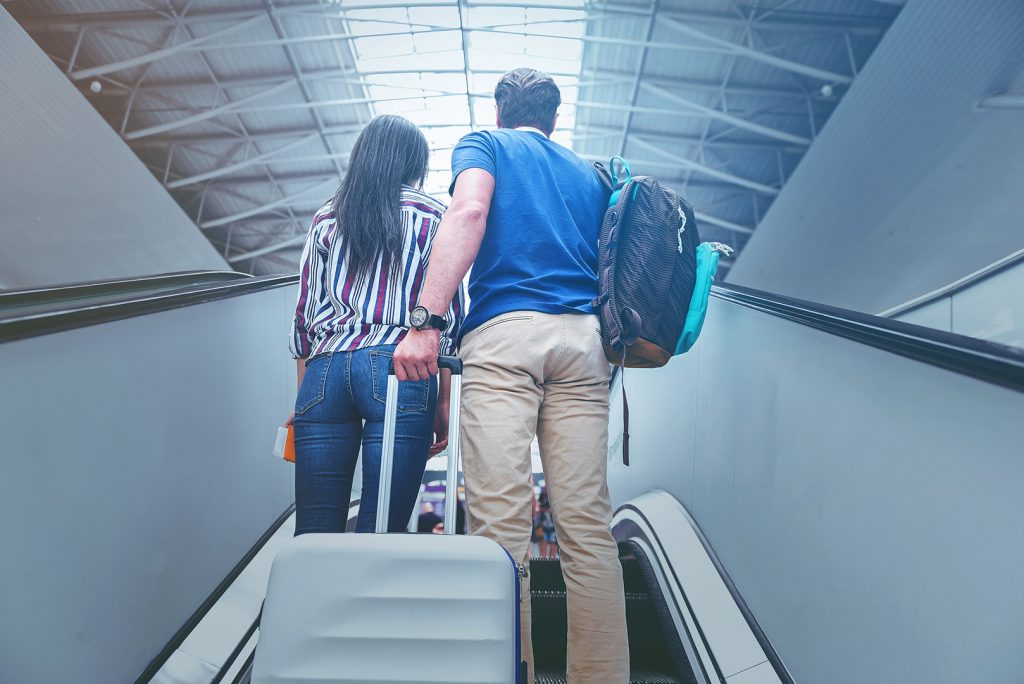
You are probably familiar with the No-Fly List, which is a list of people the government suspects of terrorism or terrorism-related activities and who thus are forbidden from boarding planes. It has also been a source of controversy, as the standards for inclusion on the list are shrouded in secrecy and trying to get off the list is a difficult endeavor, at best. Some individuals have apparently found themselves on the list because they have the same name as – or even a name that is similar to that of – a terrorist.
But while the No-Fly List presents all sorts of constitutional dangers, recent journalistic work has revealed a potentially even more problematic effort: the Transportation Security Administration’s Quiet Skies program.
Flying the Quiet Skies
In late July, The Boston Globe reported for the first time on the existence of the TSA’s “Quiet Skies” program, in which federal air marshals carefully track the pre-flight and on-flight behavior of Americans who are not on any watch list or even under investigation by any government agency.
And the reports from those air marshals can be incredibly detailed and granular. The reports filled out by air marshals and sent back to TSA note whether the passenger appeared to observe the boarding area with unusual thoroughness, the number of times he or she went to the bathroom, how long the passenger slept and even minor physical traits and tics such as a “jump in the adam’s apple” or a “cold, penetrating stare.”
The program began in 2012 with screening to determine which passengers entering the country should be subject to additional security searches or pat downs. However, the more intensive surveillance procedures described above began in March of 2018.
According to the TSA, there are about 40 to 50 passengers per day on domestic flights who fall under the Quiet Skies program. Travelers remain in the program for 90 days or three flights, whichever comes first.
Quiet Skies, Murky Criteria
At this point, readers might be wondering how passengers – American citizens, remember – can end up in the Quiet Skies program. What criteria do the TSA use to determine who is suspicious enough to qualify for Quiet Skies, but not a formal watch list?
Part of what makes the program so troubling is that there are no easy answers to those questions. In a statement to the Globe, TSA didn’t even admit to the existence of the program and certainly provided no insight into how decisions are made.
Reporting by the Globe and other outlets describes vague criteria, including travel patterns similar to known terrorists or possible affiliations with those on other government watch lists (and remember, it is difficult to impossible to confirm whether any specific individual is on a specific watch list).
As the ACLU points out, because we don’t know what criteria the TSA is using, we can’t rule out the possibility that the government is profiling travelers based on race or religion. And individuals subject to Quiet Skies investigations are not notified they are the subject of governmental surveillance and have no ability to remove themselves from the program.
Criticism From Without, Dissent From Within
The TSA refused to answer questions about whether the Quiet Skies program has prevented any attacks or even resulted in any arrests. And those are worthwhile questions, ones even being asked by the federal air marshals tasked with conducting these surveillance operations.
The Globe documented intense skepticism from several air marshals, many of whom noted that on different occasions they were forced to maintain on-flight surveillance of a Southwest flight attendant, a businesswoman whose work happened to take her to the Middle East and even another federal law enforcement officer.
These air marshals expressed frustration with the assignments, pointing out they were resource-intensive investigations that served no apparent purpose and took them off other, higher priority cases.
Now, it’s possible that the TSA had good reason to suspect these individuals or even all of the individuals targeted by Quiet Skies. But it’s impossible to make that determination due to the agency’s secrecy. And in a democracy, “Just trust us” has never been an acceptable argument for curtailing civil liberties.
In response, lawmakers from both parties demanded answers from the TSA, and the agency has scheduled briefings with the House and Senate Homeland Security Committees, the Senate Commerce Committee and the House Oversight Committee.



Leave a Comment